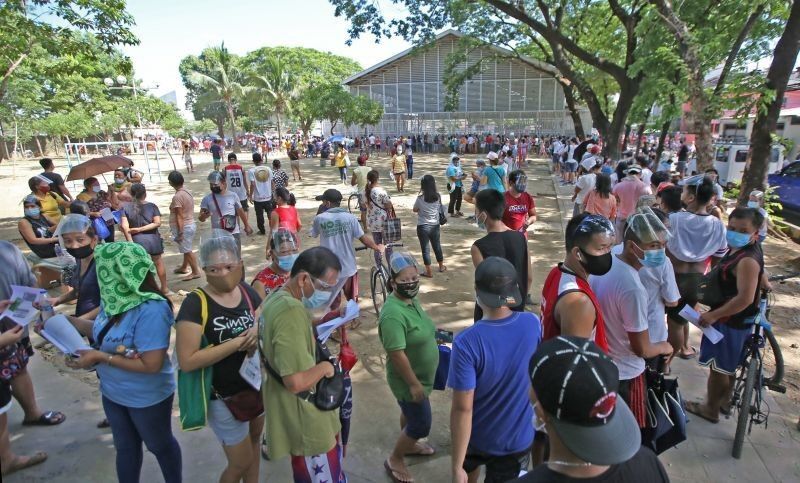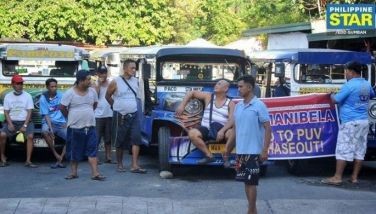'Ayuda' given for months-long 2020 lockdown lasted barely a month — study

MANILA, Philippines — People working in the informal economy, especially women, were most dependent on cash assistance from the government but these were barely enough for their day-to-day necessities during the pandemic, a study found.
When the government placed the country on strict community quarantine in 2020, many workers in the informal sector such as vendors, laundry workers, maids, street sweepers and janitors were forced to stay home. With their daily income cut off, they struggled to feed themselves and their families.
Those without formal employment had no choice but to rely on the government’s subsidy program for the most economically vulnerable.
The P200-billion Social Amelioration Program targeted to support 18 million low-income households who were most affected by COVID-19. Beneficiaries were entitled to receive P5,000 to P8,000 per month for April and May 2020.
Pantawid Pamilyang Pilipino Program beneficiaries with cash cards also received emergency subsidies from SAP.
SAP benefited 13.96 million households of at least five people last year.
While most informal workers received cash aid under SAP, the assistance was only good for one month, said a case study which consulted 70 residents in Tondo, the poorest district in the City of Manila.
According to a case study prepared by Sarah Salvador of Aktibong Kilusan Tungo sa Iisang Bayan, informal workers had to supplement the limited cash aid with relief goods from the city government, corporations and NGOs. AKTIB is a partner organization of budget monitor Social Watch Philippines.
RELATED: Most Filipinos relied on cash aid, savings and loans during quarantine — SWS
Jocelyn Bayubay, a 49-year-old resident of Manila's Barangay 119 and who participated in the study, said she received P6,700 during the first round and the full P8,000 for the second tranche of the SAP distribution during the strict three-month quarantine last year.
While the cash aid became a lifeline for informal workers like her, the funds quickly ran out in a span of days. The meager assistance also did not address needs such as house rent, utility payments and e-load for the online education of their children.
Hunger
Before the health crisis struck the country, Bayubay, a mother of 11, could sell around 2,300 sampaguita flowers daily. But now, with movement restrictions still in place more than a year into the pandemic, she only manages to sell 500 daily three times a week.
Women in the informal sector are more vulnerable to economic and social fallout as they have lower job stability, no social protections, and smaller earnings and savings.
So Bayubay had to depend on relief packages by the government or organizations, and borrow money from friends and relatives to get by.
"If there’s no food left at the end of the day, I just give the kids P10 each so that they can buy bread. I then let them manage on their own," she said.
Bayubay said she could no longer keep track of the number of times her family had to forgo eating three times a day from March to September 2020.
A Social Weather Stations survey released in September found an estimated 7.6 million Filipino households went hungry due to lack of food at least once during the coronavirus pandemic.
Now, aside from selling flower garlands, Bayubay is also helping out a friend selling food items and clothes.
The case study was part of the Citizens’ Monitoring of Financing for COVID-19 Response and Recovery: Focus on the Asian Infrastructure Investment Bank (AIIB) loan project under the guidance of Social Watch Philippines and supported by Oxfam Pilipinas.
The project examined the AIIB’s $750-million loan to the Philippine and the SAP, which was funded by the COVID-19 Active Response and Expenditure Support program. — Gaea Katreena Cabico
RELATED: Coping in quarantine: A hard time for all but inequality makes it worse
- Latest
- Trending





























